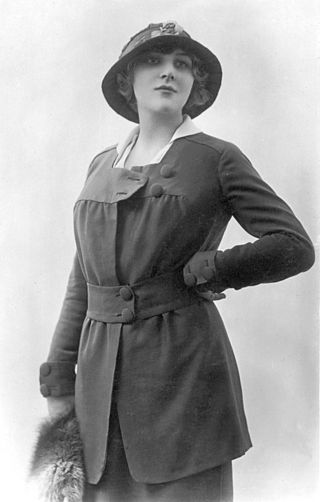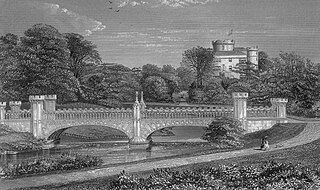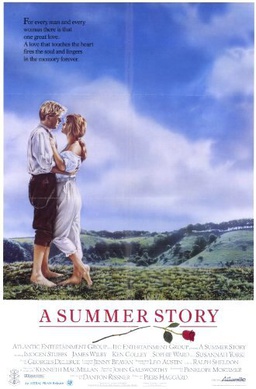Plot summary
It is 1799 and eighteen-year-old Judith Mortimer lives with her widowed father, Jonathan, on their 400-acre (1.6 km2) farm in Essex. Jonathan Mortimer has devoted his adult life, and most of his money, to writing and publishing lengthy treatises on various subjects close to his heart. None has found favour with the reading public and, consequently, he and his daughter are close to penury. Several years earlier, Mortimer suffered a stroke and is confined to bed where he works on his latest project, A Treatise on Just Government.
Meanwhile, his increasingly desperate daughter tries to find ways to keep the small household, including two servants, financially viable. She has entered into an agreement with a band of local smugglers to allow them use the farm's outhouses to store their merchandise. In return, the smugglers pay her ten to fifteen guineas each time they use the farm for their illegal purposes.
Jonathan Mortimer is first cousin to a local earl and powerful landowner to whom he is in considerable debt. The debt arises from a legal dispute concerning their mutual grandfather's will. The earl wishes to buy the Mortimers' farm, which adjoins his own larger estate, and thereby clear their indebtedness to him. Under the proposed arrangement, Jonathan Mortimer will be allowed to live out his remaining days on the farm. Furthermore, the earl offers to give Judith a generous dowry so that she can marry. However, the catch is that she must marry the odious Mr. Massingham. She refuses the offer
Robert Barnabas, son of the smugglers' leader, is in love with Judith and, during one of his nocturnal visits to the farm, he makes his feelings clear. Judith's emotions are thrown into turmoil by the handsome young man's directness. She learns that he was studying to be a doctor but abandoned it under pressure from his father to join the family 'business'. Now, as his love for Judith brings meaning to his life, he resolves to turn away from smuggling and complete his medical training.
Not long after her refusal of the earl's offer, Judith's father dies. At the same time, news of her involvement with the smugglers reaches the local militia. She is forced to flee to London with Evergreen, an orphan gypsy girl whom she has taken into her care. There, the two young women unwittingly fall into the clutches of Mrs. Ware, who runs an 'academy' for young girls. Ostensibly set up to teach its occupants how to be ladies, Mrs. Ware's academy is, in reality, a high class brothel.
Robert Barnabas pursues Judith to London and rescues her from Mrs. Ware's establishment. However, Massingham, furious and humiliated at Judith's refusal of his proposal of marriage, has also come to London seeking revenge. Together with his henchmen, he seizes Judith in the street and brings her to a lunatic asylum. There she is incarcerated for months in appalling conditions, naked and shackled in a cold cell. Massingham pays the asylum keeper to hold Judith until he feels she has learned her lesson. Eventually she is released onto the streets of London, her sanity barely intact and with nowhere to go.
She is 'adopted' by a street urchin who takes her back to his filthy hovel. Each day she is forced by her new companion to beg on the streets. After several more months of dreadful hardship, Judith is taken in by a kindly young Christian woman, Miss Westmoreland. Slowly Judith begins to recover her mental and physical health and a strong bond of friendship forms between the two women.
Through Judith, Miss Westmoreland learns of the appalling conditions in which London's poor live. She resolves to set up an orphanage and hospital to care for abandoned children. The two women raise the necessary funds and advertise for a doctor to run their new enterprise. One of the applicants is the now-qualified Dr. Robert Barnabas.
Reunited at last, Barnabas and Judith are soon married. They return to Essex to live on the Mortimer farm. It transpires that the dispute over her great-grandfather's will has been settled in her favour and the farm is now hers.

Robert Walpole, 1st Earl of Orford,, known between 1725 and 1742 as Sir Robert Walpole, was a British statesman and Whig politician who, as First Lord of the Treasury, Chancellor of the Exchequer, and Leader of the House of Commons, is generally regarded as the de facto first Prime Minister of Great Britain.

John Carteret, 2nd Earl Granville, 7th Seigneur of Sark,, commonly known by his earlier title Lord Carteret, was a British statesman and Lord President of the Council from 1751 to 1763 and worked extremely closely with the Prime Minister of the country, Spencer Compton, Earl of Wilmington, in order to manage the various factions of the Government. He was Seigneur of Sark from 1715 to 1720, when he sold the fief. He held the office of Bailiff of Jersey from 1715 to 1763.

The Small House at Allington is a novel by English novelist Anthony Trollope. It first appeared as a serial in the 1862 July to December edition of the Cornhill Magazine, and ended its run in the July to December edition of the following year. It was later published 1864 as a two volume novel. It is the fifth book in the Chronicles of Barsetshire series, preceded by Framley Parsonage and followed by The Last Chronicle of Barset. It enjoyed a revival in popularity in the early 1990s when the British prime minister, John Major, declared it as his favourite book.

Cold Comfort Farm is a comic novel by English author Stella Gibbons, published in 1932. It parodies the romanticised, sometimes doom-laden accounts of rural life popular at the time, by writers such as Mary Webb.

Roger Mortimer, 3rd Baron Mortimer of Wigmore, 1st Earl of March, was an English nobleman and powerful Marcher Lord who gained many estates in the Welsh Marches and Ireland following his advantageous marriage to the wealthy heiress Joan de Geneville, 2nd Baroness Geneville. Her mother was of the Royal House of Lusignan. In November 1316, he was appointed Lord Lieutenant of Ireland. He was imprisoned in the Tower of London in 1322 for having led the Marcher lords in a revolt against King Edward II in what became known as the Despenser War.

Earl Granville is a title that has been created twice, once in the Peerage of Great Britain and once in the Peerage of the United Kingdom. It is now held by members of the Leveson-Gower family.
Margaret of Norfolk or Margaret of Brotherton, Duchess of Norfolk in her own right, was the daughter and eventual sole heir of Thomas of Brotherton, eldest son of King Edward I of England by his second marriage. In 1338, she succeeded to the earldom of Norfolk and the office of Earl Marshal. In 1397, she was created Duchess of Norfolk for life.

Eggs, Beans and Crumpets is a collection of short stories by P. G. Wodehouse, first published in the United Kingdom on April 26, 1940 by Herbert Jenkins, London, then with a slightly different content in the United States on May 10, 1940 by Doubleday, Doran, New York.

House of Dark Shadows is a 1970 American feature-length horror film produced and directed by Dan Curtis, based on his Dark Shadows television series. In this film expansion, vampire Barnabas Collins searches for a cure for vampirism so he can marry a woman who resembles his long-lost fiancée Josette.

Regency Buck is a novel written by Georgette Heyer. It has three distinctions: it is the first of her novels to deal with the Regency period; it is one of only a few to combine both genres for which she was noted, the Regency romance and the mystery novel; and it is the only one of her Regency stories to feature Beau Brummell as an actual character, rather than as someone merely mentioned in passing. The story is set in 1811–1812.
Sherlock Holmes and the Case of the Silk Stocking is a British television film originally broadcast on BBC One in the UK on 26 December 2004. Produced by Tiger Aspect Productions, it was written by Allan Cubitt and was a sequel to the same company's adaptation of The Hound of the Baskervilles, made for the BBC two years previously. Although Silk Stocking retained the same Dr. Watson, Ian Hart, this time the character of Sherlock Holmes was played by Rupert Everett.

A Damsel in Distress is a novel by P. G. Wodehouse, first published in the United States on 4 October 1919 by George H. Doran, New York, and in the United Kingdom by Herbert Jenkins, London, on 15 October 1919. It had previously been serialised in The Saturday Evening Post, between May and June of that year.

Wrotham Park is a neo-Palladian English country house in the parish of South Mimms, Hertfordshire. It lies south of the town of Potters Bar, 17 miles (27 km) from Hyde Park Corner in central London. The house was designed by Isaac Ware in 1754 for Admiral John Byng, the fourth son of Admiral George Byng, 1st Viscount Torrington, and remains in the family at the heart of a 2,500-acre (10 km2) estate. It is one of the largest private houses near London inside the M25 motorway. Its distinctive exterior has been used over 60 times as a filming location.

The Hound of the Baskervilles is a 1959 British gothic mystery film directed by Terence Fisher and produced by Hammer Film Productions. It is based on the 1902 novel of the same title by Sir Arthur Conan Doyle. It stars Peter Cushing as Sherlock Holmes, Sir Christopher Lee as Sir Henry Baskerville and André Morell as Doctor Watson. It is the first film adaptation of the novel to be filmed in colour.

Isobel Elsom was an English film, theatre, and television actress. She was often cast as aristocrats or upper-class women.
Joan de Geneville, 2nd Baroness Geneville, Countess of March, Baroness Mortimer, also known as Jeanne de Joinville, was the daughter of Sir Piers de Geneville and Joan of Lusignan. She inherited the estates of her grandparents, Geoffrey de Geneville, 1st Baron Geneville, and Maud de Lacy, Baroness Geneville. She was one of the wealthiest heiresses in the Welsh Marches and County Meath, Ireland. She was the wife of Roger Mortimer, 1st Earl of March, the de facto ruler of England from 1327 to 1330. She succeeded as suo jure 2nd Baroness Geneville on 21 October 1314 upon the death of her grandfather, Geoffrey de Geneville.

Mysterious tunnels or "secret passages" are a common element of the local folklore tradition in Europe. Such tunnels are said to physically link prominent places such as country houses, castles, churches, ancient monuments and other, often medieval, buildings.

Dark Shadows is a 2012 dark fantasy film based on the gothic television soap opera of the same name. Directed by Tim Burton, the film stars Johnny Depp, Michelle Pfeiffer, Helena Bonham Carter, Eva Green, Jackie Earle Haley, Jonny Lee Miller, Chloë Grace Moretz, and Bella Heathcote in a dual role. Christopher Lee has a small role in the film, his 200th film appearance and his fifth and final appearance in a Burton film. Jonathan Frid, star of the original Dark Shadows series, makes a cameo appearance. He died shortly before the film was released. One of the film's producers, Richard D. Zanuck, died two months after its release.

A Summer Story is a British drama film released in 1988, directed by Piers Haggard, based on John Galsworthy’s 1916 short story "The Apple Tree", with a script by Penelope Mortimer. It stars James Wilby, Imogen Stubbs, and Susannah York.

An Age of Kings is a fifteen-part serial adaptation of the eight sequential history plays of William Shakespeare, produced and broadcast in Britain by the BBC in 1960. The United States broadcast of the series the following year was hosted by University of Southern California professor Frank Baxter, who provided an introduction for each episode specifically tailored for the American audience. At the time, the show was the most ambitious Shakespearean television adaptation ever made, and was a critical and commercial success in both the UK and the US. Performed live, all episodes were telerecorded during their original broadcast.

















